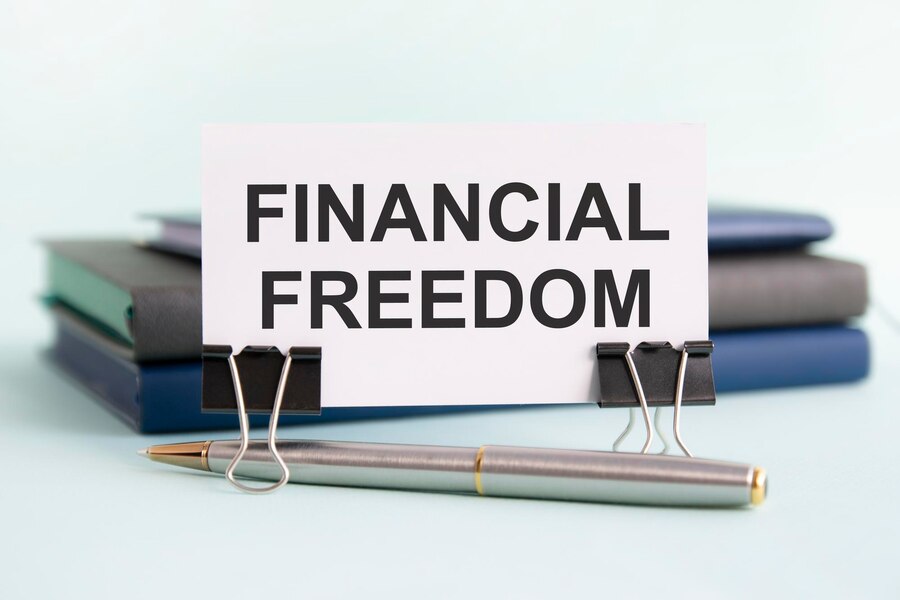Can Debt Settlement Opportunities In Lower-Township, New-Jersey Work For You?
Debt settlement is the process of negotiating an agreement for a lower payoff amount than currently owed. This is usually done through a third party. A debt settlement company in Lower-Township, New-Jersey, can often work out a much lower amount to get your debt settled in a shorter time. This can be a great alternative to filing for bankruptcy, particularly for a debt owed to a debt collection agency, as they commonly purchase debt for pennies on the dollar.
How Can I Settle Debt For Less Than Owed?
Did you know it is possible to settle the majority of debt for less than actually owed? This is even more likely for debt held by a collection agency. The idea with debt settlement opportunities is to get your debt settled for as little as possible. This helps you get out of financial struggle, and all debt settlement companies will promise to lower your debt and payments by some amount.
When you are looking for a debt settlement company, keep in mind that good agencies will often be associated with the American Fair Credit Council (AFCC), which has a strict code of conduct. The company will have been in business for a longer period with a positive track record and can often estimate the amount you can expect to repay and how long it will take to complete the process.
Can I Settle Debt Myself?
The short answer is, yes, it is possible, but it is not recommended. The overall process of a debt settlement program is contacting creditors you owe on your behalf to negotiate a lower payoff amount. However, unless you have amazing negotiation skills, along with the experience and discipline of working with creditors or debt collectors that bought your debt, you could dig a deeper hole.
Debt collectors are very familiar with the novice DIY attempts and have tactics that often pressure consumers into paying back the whole debt anyway. That is when paying the services of an experienced debt settlement company can be beneficial. They will do all the negotiating for you, using their experience and professionalism to work around the intimidation tactics.
In the end, the debt settlement fees are often minimal compared to the number of settled debts. Especially if they can get your debt settled by 50% or more. However, you should be aware of the pros and cons associated with debt settlement; it’s not all positive.
Knowing The Pros and Cons of Debt Settlement
When it comes to debt settlement, the goal is to begin rebuilding your financial situation while being able to afford payments and possibly having the ability to create a nest egg. This sounds good, but there are some negative sides to settling debt.
There are more than financial costs when it comes to debt settlement; it can impact you emotionally and personally as well. While a debt settlement company may act as a safety net, you could still do a balancing act.
Debt Settlement Pros
The debt will be lowered to some amount less than you currently owe. The actual amount saved cannot be determined until after the debt settlement company works out deals with all of the creditors.
Debt settlement may be your least expensive option compared to debt management, credit counseling, or bankruptcy. You make lower monthly payments.
Once the settlement period is over, you can begin a fresh financial life, unlike other options that sometimes stick around forever.
If debt settlement is successful, debt collectors won’t sue you, and wage garnishments can be avoided. This, in turn, reduces emotional stress.
The potential of bankruptcy can be avoided with a successful debt settlement plan.
Debt Settlement Cons
Below are the downsides to going with debt settlement and why it should never be the first choice if other options of paying the debt are available to you.
Consumers have to be patient because the overall process can take a while. Debt settlement companies will first need collateral in most cases, such as a vehicle or your house, to assure they will be paid. Then, they have to contact each creditor to work out the lower debts.
During the negotiation process, creditors will continue reaching out about the debt owed. However, once the deal is made and the debt settlement plan begins, they are no longer allowed to contact you.
Sometimes consumers end up unable to make their monthly debt settlement payments to the escrow account as requested by creditors to get the full debt settled.
During the negotiation process, debt balances continue to have late fees, and interest added. This can drastically increase overall debt the longer negotiations take.
There are no guarantees that creditors will be able to get creditors to accept a lower amount.
It is possible that creditors will sue for repayment before the debt settlement company is able to finish the negotiation process and make a lump-sum offer. If creditors win, it could result in garnished wages or a property lien.
If the debt settlement is successful, it will still damage your credit, and it will remain on credit reports for 7 years.
The damage to your credit can range between 100 to 125 points, and creditors will be biased when seeing “settled” on the report. Although, it is still better than it showing “bankruptcy.”
Why is Debt Settlement Better Than Bankruptcy?
Although debt settlement has many disadvantages, there is an even worse option – bankruptcy. If you can be successful with a debt settlement plan, you should avoid bankruptcy when possible. Below are some reasons that make bankruptcy worse than debt settlement.
First, bankruptcy takes 10 years to stop impacting your credit score, compared to only 7 years with debt settlement. However, debt settlement is removed from credit reports as well, while bankruptcy continues to be visible forever. This means any creditor, employer, or homeowner that pulls a credit report will ask about the bankruptcy. Additionally, it has the potential to make those people biased and deny your application.
With bankruptcy, the creditors may not receive any additional payment on your balance. That is why they are more likely to accept a lower payment when contacted by debt settlement agents. When you file for bankruptcy, all valuable assets are liquidated with a very short list of exempted assets. You may even be forced to sell your home, only receiving a small portion of the selling price to live on.
Your credit score has taken a massive hit for years, and it takes much longer to recover from bankruptcy compared to debt settlement. In many cases, your credit can begin rebuilding within 1 to 3 years after starting debt settlement repayment. Over time, making payments on time will begin to help your credit.
With bankruptcy, all your credit cards and other charge cards are likely to be closed. Whereas, with debt settlement, unless it is directly mentioned, you can usually keep them open. This helps by keeping your open credit balance going and is useful for emergency use. It is not recommended to continue using cards for casual purchases as you are trying to get out of debt, and that only puts you further in the hole.
Cost Of Debt Settlement Services
The average cost of a debt settlement service is between 10%, and 20% of the original balance owed included in the repayment terms. In addition, there will be a small upfront charge for the application process. Therefore, if your debt is $60,000 and the service fee is 10%, you’ll pay $6,000. If they can reduce your debt by 40%, your total repayment amount would be $42,000.
Keep in mind that the length of your repayment will also be a major factor in how much you’ll pay over time. Most people tend to choose the lowest monthly payment, but that will be the most expensive overall due to paying monthly interest across many more payments. For example, if you can take a larger monthly payment and get your debt paid back in 12 months, you only pay interest on those 12 payments. However, with a 36-month term, you could be paying more interest than you originally owed.
Always question a debt settlement company about their upfront application fee, their service fees, what is included, and their term options. If they only offer a longer repayment term, you may want to consider another provider.
How To Find Debt Settlement Agency In Lower-Township, New-Jersey
When it comes to finding the ideal debt settlement agency in Lower-Township, New-Jersey, you should keep a few things in mind. First, you want to find one that stays transparent about its fees, has a great history of providing excellent customer service and results, and has been accredited by a trusted industry like the AFCC.
To check out a debt settlement company, you can contact your state Attorney General to retrieve official complaints against a business. You can also look them up on the BBB website to see if they have any on there.
You want to do your homework to ensure that you avoid settlement scams. It is recommended by the Federal Trade Commission (FTC) that you look for various features of a debt resolution company for legitimacy. You want to be sure they are professional, transparent, and fair.
Resolution companies cannot guarantee a result. Creditors are not bound by law to consider or accept any settlement offer made. The best any debt settlement agency can do is offer an ideal range and try their best.
The FTC also suggests noting which of the following information, if any, they provide:
- Escrow funds are yours, including interest earned.
- While it will slow your process, you can withdraw from the escrow balance without penalty.
- The account administrator is not with the debt resolution company.
You should find a company that offers in-person meetings, especially for the first meeting. Once you have settled and started repayment, having the ability to pay over the phone or online is a bonus. Many companies will offer all three.
Are they advertising as a non-profit? Follow the same things as above, and ensure they are transparent and professional. Non-profit does not mean they are providing reduced fees. Some even include hidden fees within the repayment terms. Others have expensive upfront fees.
Finally, if a debt settlement service is requesting a large upfront fee, find another one. Chances are they do this because they put little to no effort into actually negotiating with creditors to get you the lowest settlement possible. In some cases, this can cause your balances to ensure much more interest and late fees and prolong your stress.

